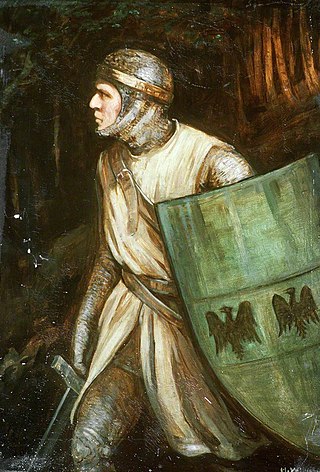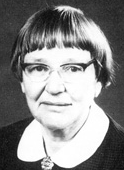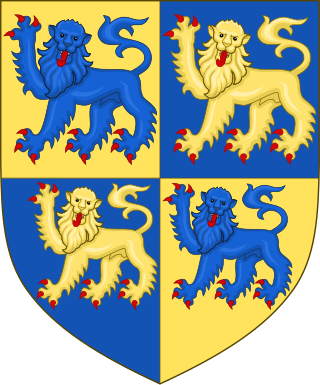Related Research Articles

Llywelyn ap Gruffudd, sometimes written as Llywelyn ap Gruffydd, also known as Llywelyn the Last, was the native Prince of Wales from 1258 until his death at Cilmeri in 1282. Llywelyn was the son of Gruffydd ap Llywelyn Fawr and grandson of Llywelyn the Great, and he was one of the last native and independent princes of Wales before its conquest by Edward I of England and English rule in Wales that followed, until Owain Glyndŵr held the title during the Welsh Revolt of 1400–1415.
Llywelyn the Great was a King of Gwynedd in north Wales and eventually "Prince of the Welsh" and "Prince of Wales". By a combination of war and diplomacy he dominated Wales for 45 years.

Owain ap Gruffudd was King of Gwynedd, North Wales, from 1137 until his death in 1170, succeeding his father Gruffudd ap Cynan. He was called Owain the Great and the first to be styled "Prince of Wales". He is considered to be the most successful of all the North Welsh princes prior to his grandson, Llywelyn the Great. He became known as Owain Gwynedd to distinguish him from the contemporary king of Powys Wenwynwyn, Owain ap Gruffydd ap Maredudd, who became known as Owain Cyfeiliog.

The Kingdom of Gwynedd was a Welsh kingdom and a Roman Empire successor state that emerged in sub-Roman Britain in the 5th century during the Anglo-Saxon settlement of Britain.

Dafydd Wynne Wigley, Baron Wigley, is a Welsh politician. He served as Plaid Cymru Member of Parliament (MP) for Caernarfon from 1974 until 2001 and as Assembly Member for Caernarfon from 1999 until 2003. He was the leader of Plaid Cymru from 1981 to 1984 and again from 1991 to 2000. On 19 November 2010 it was announced that he had been granted a life peerage by the Queen, and he took his seat in the House of Lords, as Baron Wigley of Caernarfon, on 24 January 2011.

Sir John Morris-Jones was a Welsh grammarian, academic and Welsh-language poet.

Dafydd ap Llewelyn ap Hywel, better known as Dafydd Gam, anglicized to David or Davy Gam, was a Welsh warrior, a prominent opponent of Owain Glyndŵr. He died at the Battle of Agincourt fighting for Henry V, King of England in that victory against the French.

Bangor Cathedral is the cathedral church of Bangor, Gwynedd, Wales. It is dedicated to its founder, Saint Deiniol.
Gruffydd ap Gwenwynwyn was a Welsh king who was lord of the part of Powys known as Powys Wenwynwyn and sided with Edward I in his conquest of Wales of 1277 to 1283.
Gruffudd Leiaf was a 15th-century Welsh poet, known almost exclusively from his works. He was reputed to descend from the royal family of Gwynedd.

Ysbyty Ifan is a small, historic village and community in the Conwy County Borough of Wales. The population in 2011 was 196 in 76 households, over 79% of the population were able to speak Welsh. It has one of the smallest populations of any Welsh community, the smallest being Ganllwyd. It is in the electoral ward of Uwch Conwy.

Rachel Bromwich born Rachel Sheldon Amos, was a British scholar. Her focus was on medieval Welsh literature, and she taught Celtic Languages and Literature in the Department of Anglo-Saxon, Norse and Celtic at Cambridge, from 1945 to 1976. Among her most important contributions to the study of Welsh literature is Trioedd Ynys Prydein, her edition of the Welsh Triads.
Gruffudd Gryg was a Welsh poet from Anglesey, North Wales.
This article is about the particular significance of the century 1201–1300 to Wales and its people.
Dafydd Glyn Jones is a Welsh scholar and lexicographer, born in the village of Carmel, Gwynedd. He is a specialist in Middle Welsh prose, and his other interests include Welsh history, Robert Jones, Rhoslan, and the life and work of Emrys ap Iwan.
Henry Honore was the Dean of Bangor from 1410 until 1413.

Dafydd ap Gruffydd was Prince of Wales from 11 December 1282 until his execution on 3 October 1283 on the orders of King Edward I of England. He was the last native Prince of Wales before the conquest of Wales by Edward I in 1283 and English rule in Wales that followed, until Owain Glyndŵr held the title during the Welsh Revolt of 1400–1415.
Dafydd Rhys ap Thomas (1912-2011) was a Welsh theologian, specialising in Old Testament studies.

Dafydd ab Ieuan ab Iorwerth was Bishop of St Asaph from 1500 to 1503.
Dafydd Trefor was a Welsh cleric and bard. He is known to have been born in the parish of Llanddeiniolen, Caernarfonshire. Bangor parish records for 1504 refer to him as rector of Llanygrad, and as a canon.
References
- ↑ Lloyd, John Edward. "Dafydd Daron". Dictionary of Welsh Biography . National Library of Wales . Retrieved 15 November 2016.
- ↑ Burke, Bernard (1863). A Genealogical and Heraldic Dictionary of the Landed Gentry of Great Britain and Ireland, "Mealy of Perfeddgoed". Harrison.